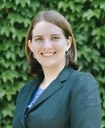Seminar Series: His Gain, Her Pain? The Motherhood Penalty and the Fatherhood Premium within Coresidential Couples
| When |
Oct 28, 2013
from 12:00 PM to 01:00 PM |
|---|---|
| Where | 0124B Cole Student Activities Building |
| Contact Name | Tiffany Pittman |
| Contact Phone | 301-405-6403 |
| Add event to calendar |
|
About the Talk
Studies based on single-sex models document a substantial motherhood wage penalty and a smaller fatherhood premium. These results tell us little about how the labor costs of parenthood operate within couples – a crucial limitation given that most American children are born to couples. Specialization theory suggests that spouses are making tradeoffs, with highly-specialized couples receiving both a large motherhood penalty and a large fatherhood premium and less specialized couples experiencing smaller changes for each spouse. However, it is also possible that spouses share traits and circumstances that lead to positively associated parenthood wage changes, with some couples better able to avoid the wage costs of parenthood for both parents. Using couple-level random-slope models and data from the Panel Study of Income Dynamics, we bring a dyadic perspective to the study of parenthood wage changes. We find that, despite large average sex differences in parenthood wage changes, spouses’ wage changes at parenthood are uncorrelated. In other words, women who experience smaller motherhood penalties are neither more nor less likely to be partnered to men with large fatherhood premiums. Changes in spouses’ unpaid labor time are similarly uncorrelated, calling into question the assumption that spouses are simply dividing a fixed amount of household labor between them. Overall, we find little evidence that the fatherhood premium for contemporary American men comes at the expense of the motherhood penalty.
About the Speaker

Alexandra (Sasha) Killewald is an Assistant Professor of Sociology. She received her PhD in Public Policy and Sociology from the University of Michigan in 2011. Her research takes a demographic approach to the study of social stratification.
Much of her work focuses on the work-family intersection, including the ways in which earnings and employment shape women’s time in household labor, and the effect of marriage and parenthood on workers’ wages. Her research also engages questions regarding the distribution of U.S. wealth. She has written on the role of parental wealth in explaining the Black-White wealth gap, as well as the influence of parental wealth on spouse choice.
She is co-author of Is American Science in Decline? (2012), which documents trends in the size of the American scientific workforce, public attitudes toward science, youth interest in science, the production of scientific degrees, and transitions to scientific employment.
